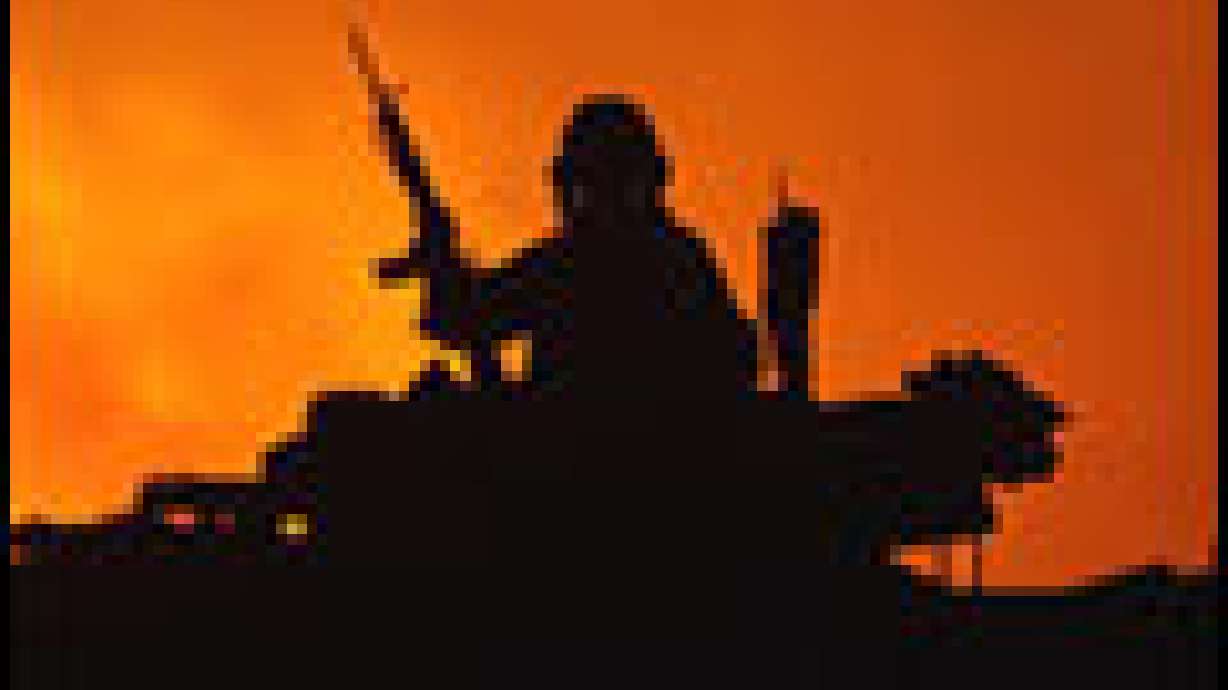Estimated read time: 4-5 minutes
This archived news story is available only for your personal, non-commercial use. Information in the story may be outdated or superseded by additional information. Reading or replaying the story in its archived form does not constitute a republication of the story.
KIRKUK, Iraq (AP) -- Kurdish fighters poured into the Iraqi oil city of Kirkuk on Thursday, facing little resistance. It was the clearest sign yet that Saddam Hussein's authority in the north was crumbling.
Soon after, Turkey announced it was sending military observers to Kirkuk with U.S. approval. Turkey has said repeatedly that it will not accept Iraqi Kurdish control of the city, fearing it could encourage the creation of an independent Kurdish state in northern Iraq and inspire Kurdish rebels in Turkey.
At a U.S. military briefing in Qatar, Maj. Gen. Gene Renuart stressed that U.S. Special Forces in northern Iraq have established a relationship with Kurdish fighters in the area. "Operations that may occur will be done in close coordination with and under the control of our U.S. forces," he said.
Kirkuk was Iraq's No. 2 oil center, and wresting control of the city from Saddam has been a long-held dream of the Kurds. The north's other major city -- Mosul -- remained for now under regime control.
Arab TV stations carried live images of residents of Kirkuk climbing on a huge statue of Saddam in Arab dress, in front of a crowd of hundreds. The men wrapped a rope around the neck and the raised arm and started tugging at it, similar to scenes in Baghdad on Wednesday. The letters "USA" were spraypainted on the base of the statue.
Al-Jazeera television also showed a steady stream of cars entering Kirkuk, past abandoned sandbagged positions.
Elsewhere in the north, Kurdish peshmerga forces swept unopposed into the strategic city of Khaneqin on the Iranian border, and combined with U.S. special operations troops to rout Iraqi soldiers at Altun Kupri, 20 miles north of Kirkuk.
It was unclear if any Iraqi forces were still in Kirkuk. Shooting was heard on the northwest edge of the city.
Kurds consider Kirkuk and Mosul part of their historical ethnic territory but neighboring Turkey has threatened to send troops into Iraq if the Kurds took control of the two oil cities.
Turkey argues the Kurds may not share the oil with other Iraqi groups after the war. The Turks also fear that Iraqi Kurds would declare an independent state if they controlled the valuable oil resources.
More than 100 vehicles -- ranging from cars to pickups to even a garbage truck -- drove though the streets of Kirkuk at will Thursday, heavily laden with Kurdish fighters. Local people ran out of their homes to cheer and throw roses as the fighters passed.
Kirkuk had been controlled by Saddam's regime but most of its population was Kurdish.
The cars and trucks flew the flags of the two major political parties who rule the two sectors of the autonomous region; yellow for Kurdistan Democratic Party and green for the Patriotic Union of Kurdistan.
At Khaneqin, another oil-producing city along the Iranian border, hundreds of Kurdish troops moved through the city Thursday, greeted by cheers. Residents said the city of 100,000 people had been under a 6 a.m. to 6 p.m curfew for several days.
Shortly after Iranian TV broadcast images Wednesday evening of Baghdad's fall, people emerged from their homes and found that Iraqi soldiers and members of the ruling Baath Party had gone. Kurds said they met no resistance in the morning.
Khaneqin lies south of the Kurdish autonomous region near the border with Iran, about 90 miles north of Baghdad.
The push into Kirkuk was set up earlier in the day, when Kurdish forces and U.S. special operations troops moved unopposed into the town of Dibis, on a road running along the western edge of the Kirkuk oilfields.
The oil facilities were completely intact around town. The flames that burn atop the wells were still blazing, showing that shafts were still pumping.
People in Dibis had attacked a tile mural of Saddam, throwing mud at it, smashing it with rocks and pieces of cinderblock, and hitting it with their shoes -- a gross insult in Arab culture. They also looted the headquarters of Saddam's ruling Baath Party.
On the road leading to Dibis, hundreds of Iraqi soldiers in uniform walked down the road without weapons, past clusters of U.S. special forces troops and a large force of Kurdish peshmerga militiamen moving into the town.
Some of the Iraqi troops shouted "Hurray America and Britain!" as they walked; some waved at the peshmergas.
At Altun Kupri, the Kurdish and U.S. assault pushed Iraqi troops back to Kirkuk. Kurdish commander Feridoun Janrowey said some of his fighters were wounded and 10 to 15 Iraqis were taken prisoner in the battle.
On Wednesday, Kurds celebrated throughout the day as American forces moves into Baghdad and it became clear that Saddam's regime had collapsed in the capital.
Iraqi Kurds have no love for Saddam, who orchestrated a 1988 poison gas attack that killed tens of thousands of their countrymen.
(Copyright 2003 by The Associated Press. All Rights Reserved.)









